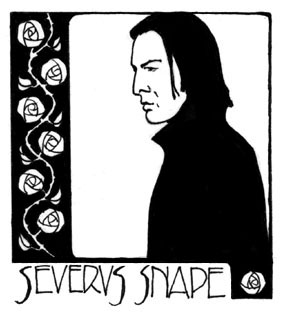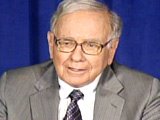james,
i started reading a book by th white. wait, i started reading it when we were neighbors, but i put it down in order to read harry potter 6. i have made a more commited effort into the Once and Future King. its hysterical. i have a feeling you'd really enjoy his sense of humor. i was looking for a little information about the author. his other books sound irresistable. one entitled Goshawk is about his "ill-fated" attempts to become a falconer.
 harry potter 6: are they really dropping out of school to chase down death eaters? what?
harry potter 6: are they really dropping out of school to chase down death eaters? what?
and snape? how could that be? dumbledore trusted him. how did he manage to fool dumbledore for all those years? i liked snape as the anti-hero. kind of mean and sinister, but in the end could be counted on to do the right thing. i find that, and i think we have talked about this, death in the harry potter books is kind of perplexing. the aveda-kadavera curse is just so abrupt. cedric's death took me a while to grasp. sirius just sort of slipped into an abyss. its so vague. so much of the magic in the books is reversable. plus albus was so sort of all-knowing. i sort of wish that that suprise hadnt been ruined. but its like luke skywalker and darth vader. you cant keep that underwraps for very long.
it took about 300 pages before i found myself enjoying the 6th book. the 1st hundred pages of all the books are about how bored and miserable harry is at privet drive and then being collected to go off to hogwarts. i guess i noticed it more because i had just finished the previous book. the pensieve flashbacks of tom riddle's young life were exciting. the 7th book has a lot of ground to cover if it indeed is the final installment.
extremely loud & incredible close: the first pages cracked me up and last pages had me fighting back tears. oscar schell was totally convincing. i can think of a few books that try and succeed at building a believable perspective of a child narrator. he's over smart and a lot like a miniature adult, but the frustration and helpless feeling that comes from being little, i think, is what makes him seem real. i didnt very much enjoy the sections written by his grandparents. their language was overly poetic and flowery. it could be unfair of me, but it just doesnt seem like old people to write like that. it seemed more like young people's writing. i liked the inclusion of photographs and blank pages. i caused me to read it slowly which i think is what safran-foer wants. its a pretty emotional story that should be read slowly and carefully.
me up and last pages had me fighting back tears. oscar schell was totally convincing. i can think of a few books that try and succeed at building a believable perspective of a child narrator. he's over smart and a lot like a miniature adult, but the frustration and helpless feeling that comes from being little, i think, is what makes him seem real. i didnt very much enjoy the sections written by his grandparents. their language was overly poetic and flowery. it could be unfair of me, but it just doesnt seem like old people to write like that. it seemed more like young people's writing. i liked the inclusion of photographs and blank pages. i caused me to read it slowly which i think is what safran-foer wants. its a pretty emotional story that should be read slowly and carefully.
[...]
are you still in the mountains? i really miss the mountains. i was feeling heavy nostalgic about them recently. about camp and stuff. but i soon realized that the things i miss about camp are no longer there. [...] but i miss you and jenny being my neighbors and our porch and drinking butterbeer. matty's idea to hold down the point was a smart one that we should have taken more seriously.
love,
ben
___________________________________________________________________________________________
Dear Ben,
Did you read the stuff about R.A.B.? In the end, I think the Snape issue has to do with the morality of children's literature. If he's a bad guy, then the moral is, you can't trust anyone, not even Dumbledore. If he's a good guy, then there is strong moral of trust in friendship, obviously one of the things she's been going for all along. Also, Harry's pretty dumb to want to go at it solo. Hasn't he learned anything? If he has to destroy four or five horcruxes in the next book, each one like a mini Voldemort, it's a lot to do by himself. Trust & Friendship. & Ginny & Hermoine are some pretty powerful witches.
I felt very strongly about the Extremely Loud book after I finished it last year, like it was a contemporary classic destined to become a classic proper. Since then I've been more defensive & confused about it. Also, I daydream about teaching it to a high-school literature class, bringing out elements of 21st century literature in a fairly accessible book. I didn't like the grandparent's chapters the first time either (because mostly you're wanting to get back to Oskar's chapters), but when I read it out loud to Jenny, those choked me up the most. Stylistically, I think there's some important things going on: 1) hipster authors have been using pictures & graphs for awhile, but this time it seems more tasteful, less gimicky. 2) Existentialists turning into aburdists & postmodernists always had an athiestist meaninglessness-of-life disconnection of symbols. I mean, if there was a detective-trope looking for the solution to a mystery, things might be connected in a meaningless way (like Oedipa Maas in The Crying of Lot 49), & things might spiral out into a despair, or a "find your own meaning in life". What's cool about this book is that it seems to be building on that genre, but absolutely everything is interconnected. He's on a totally quixotic search (to find the lock to a key in Manhatten), but almost every detail in the novel stems somehow from the central theme - losing a loved one during a major, unneccesary civilian massacre. Love & War. Also, the idea of collecting things, & writing letters to people you love. Did you figure out why he always wore white? Becuase, in the the hiroshima bombs, the black lettering on white paper was burnt out, saving the white. & he was vegan because he didn't want to eat anything that could have been someone's father.
Well, we spent the day on the beach. I swam around in Tahoe for awhile, which was totally quenching. Now I'm drinking Sierra Nevada, wondering how I'm ever going to get this place cleaned before my father drives up tomorrow. We want to move to the Pacific Ocean. I miss the Point, too, dearly, but it was a season of complex, subtle emotions. I still have nightmares about [...].
[...]
Keep in touch. I want to hear post-camp gossip. Israel Potter [by Herman Melville] is a fast-paced adventure, which I'm reading very slowly - full of ironic patriotism, hubris, sea battles, parodys of figures like Ben Franklin, & innocents abroad.
Peace,
James
______________________________________________________________________________________________
james,
before this gets too out of hand: because dumbledore is sort of all knowing, you think it might be possible that he knew what snape was going to do and allowed it to happen? that it was planned between the two of them? then why not prepare harry for it somehow? perhaps i have missed your point. how is it possible that snape is still a good guy? its amazing to me how much study goes into learning the identity of R.A.B.. i was sort of content to wait for the next book. i'd recommend that harry stay in school. death eaters are always killing experienced aurors. what makes harry think he stands a chance?
back to Extremely Loud:
yeah, i didnt see the photos as a gimick either. it crossed my mind at first. the pages that were meant to be from thomas schell senior's communicating pad carried the same weight. i thought they were important. i may have mentioned this in the previous email, but those pages slowed me down. in a good way. they served to set a relaxed and patient pace for reading the book. its been a while since i have read a book with as much gravity. by the end i was sort of blazing through it at top speed and feeling guilty for doing so.
ok, the part of the book where bombs are imagined in reverse. bombs collecting fire and destruction then jumping back into the bellies of planes which fly backwards etc etc. i have encountered that image a handful of times recently. i know joseph heller uses it in catch 22. thomas pynchon uses it in gravity's rainbow. why is that so common?
i like the pacific ocean. rather, i am pretty much captivated by it. its funny, the atlantic ocean doesnt really effect me very much. the pacific ocean has a much different power. i lived at the pacific ocean in san francisco. its really too bad that i didnt take to that city because i really enjoyed having the ocean near by. i think i'd like to live in oregon or washington state sometime soon.
post camp gossip? man, i knew little of what was going on even when it was happening around me.
[...]
please let me know about music events. oh, i played some "acoustica" for a friend-exgirlfriend. she studied at eastman and claims also to know some of the composers on that compilation. what a small world.
love,
ben
_________________________________________________________________________________________________
Ben,
I'm watching Germany-Argentina play in the World Cup Quarterfinals.
A lot of people I went to high school with went the Eastman route. My friends are Caleb Burhans & his wife Martha who play strings & sing for Alarm Will Sound. They're also on that Steve Reich Tehilim I gave you on the mix. Caleb arranged the "Cliffs" one, which I think is really beautiful.
How Snape still might be a good guy:
He was under contractual obligation (unbreakable curse) to protect Draco, plus he was surrounded by death eaters, & killing Dumbledore was what it came down to to protect himself, despite his allegances. It is very possible that Dumbledore would have previously discussed with Snape this eventuality, & in his humility, would have considered Snape more important to remain alive than himself.
Is it possible that he is a true double agent, too deep now in both sides to have preferences?
Slaughterhouse Five has the backwards bombs things also. I guess it occured to a lot of those guys who witnessed so much bombing.
Go Germany? Argentina?
James
____________________________________________________________________________
Jenny finished HP6 last night, & she was crying & tossing & turning all night. She says she so mad at J.K.
Plus, didn't it seem like Snape was still trying to teach & protect Harry during their last confrontation. Jenny's pissed at Snape & doesn't believe me that he still could be on our side.
_______________________________________________________________________________________________________
she's pissed at rowling? i was pissed at snape. is that the same thing?
[...]
listen, i have always really liked snape. its hard for me to believe.
i cant really see how snape can still be on our side, but it would fit in jkrowling-nothing-is-what-it-seems-wait-n-see kind of way. it would take lots of explaining. are there any clues that snape knew harry was there watching? dumbledore put his undieing faith in snape. i guess that should be good enough for all of us. not just harry, but us readers too. you know what? i think i just convinced myself. i'm standing by snape on this one. tell jenny.
also, they'll hang a talking portrait of dumbledore in the headmaster's office. he's not gone like sirius is gone.

 me up and last pages had me fighting back tears. oscar schell was totally convincing. i can think of a few books that try and succeed at building a believable perspective of a child narrator. he's over smart and a lot like a miniature adult, but the frustration and helpless feeling that comes from being little, i think, is what makes him seem real. i didnt very much enjoy the sections written by his grandparents. their language was overly poetic and flowery. it could be unfair of me, but it just doesnt seem like old people to write like that. it seemed more like young people's writing. i liked the inclusion of photographs and blank pages. i caused me to read it slowly which i think is what safran-foer wants. its a pretty emotional story that should be read slowly and carefully.
me up and last pages had me fighting back tears. oscar schell was totally convincing. i can think of a few books that try and succeed at building a believable perspective of a child narrator. he's over smart and a lot like a miniature adult, but the frustration and helpless feeling that comes from being little, i think, is what makes him seem real. i didnt very much enjoy the sections written by his grandparents. their language was overly poetic and flowery. it could be unfair of me, but it just doesnt seem like old people to write like that. it seemed more like young people's writing. i liked the inclusion of photographs and blank pages. i caused me to read it slowly which i think is what safran-foer wants. its a pretty emotional story that should be read slowly and carefully.









